Princess Konoe lifted the lid of the tiny porcelain tea jar and a fresh sweet scent wafted out. ‘Uji tea,’ she said brightly. ‘The finest in the land. Have you ever tried it?’
Atsu shook her head.
‘An urn of this same tea is sent up to the Great Ruler in Edo every year. All other traffic has to make way for it.’The Shogun’s Queen
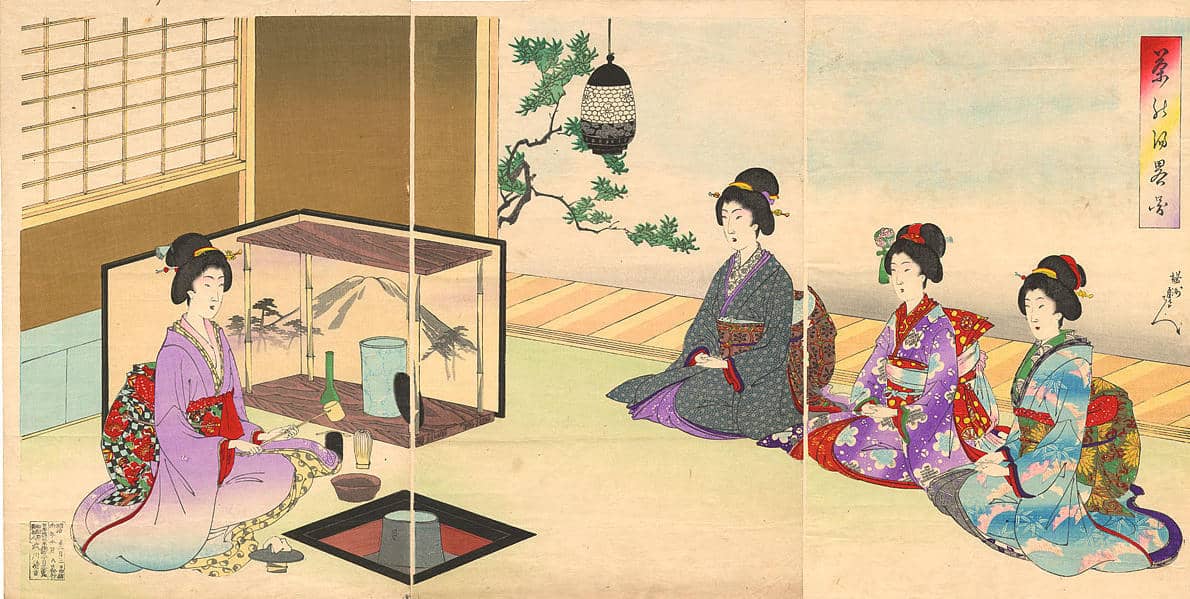
By Yōshū Chikanobu (artsanddesignsjapan.com) [Public domain], via Wikimedia Commons
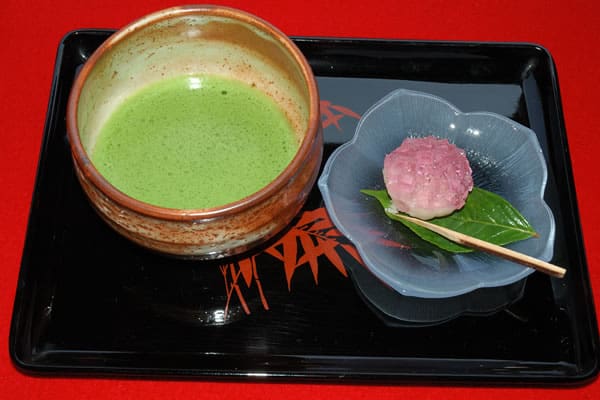
See page for author [GFDL or CC-BY-SA-3.0], via Wikimedia Commons
When you go to a tea ceremony, you sit on your knees on the floor on tatami mats made of fragrant rice straw. In the alcove you’ll see a beautiful hanging scroll with a few brushstrokes conjuring up a whole landscape and in front of it a vase with a single sprig of flowers, perfectly arranged.
Our hostess, in her kimono, is kneeling in front of a small brazier set in the floor. She takes a caddy of green tea and a delicate cherry wood scoop and measures two spoonfuls into a beautiful stoneware tea bowl.
Then she hands around a plate of cakes, small, dense and sweet, made of rice flour and bean paste. In spring they’re coloured pink and moulded into cherry blossoms complete with stamens and pistils, in autumn shaped into chestnuts or maple leaves.
She ladles warm water into the tea bowl, takes a bamboo whisk that looks a bit like a shaving brush and beats the tea to a brilliant green foam, then bows and hands it to you.
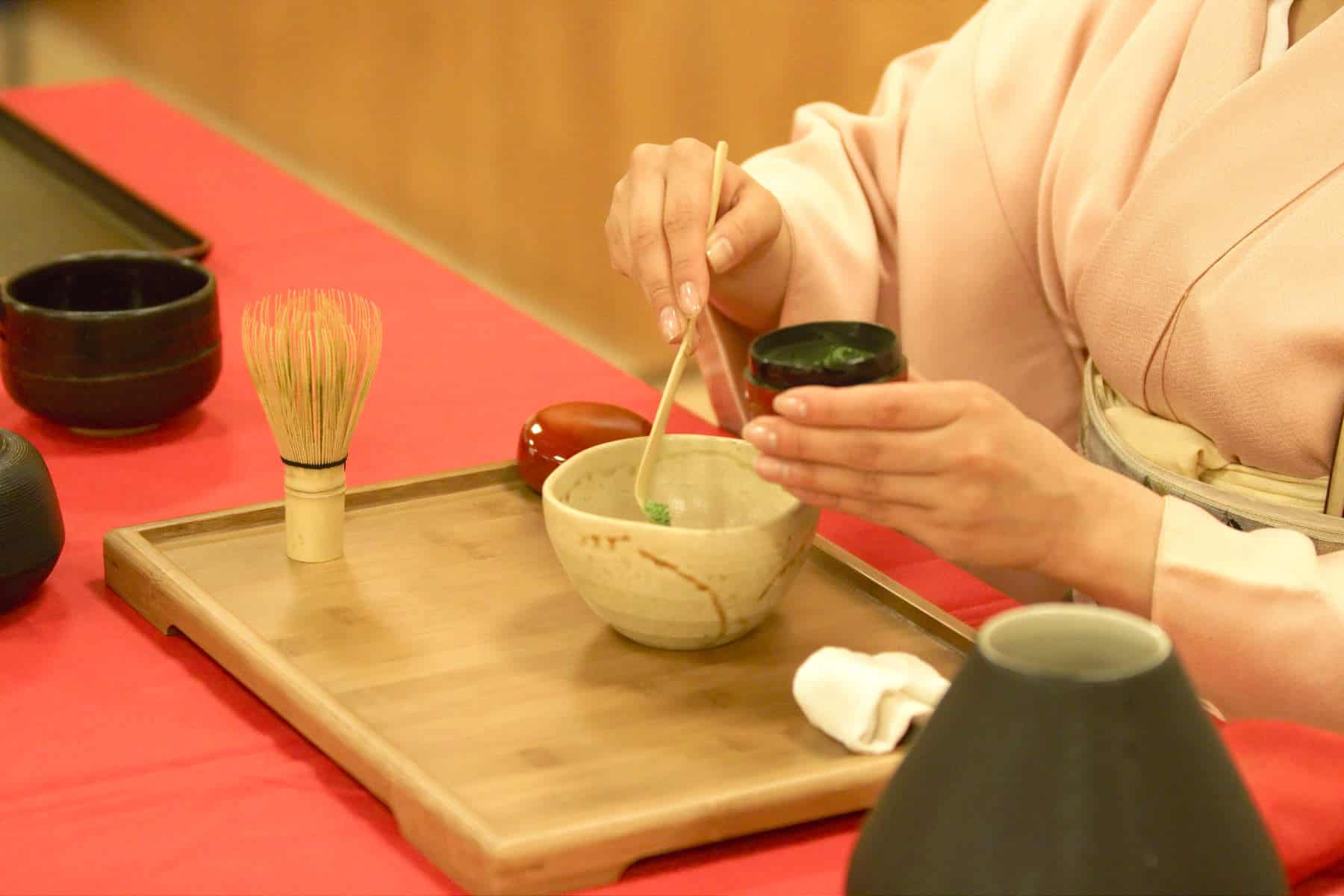
By Georges Seguin (Okki) (Own work) [GFDL or CC BY-SA 3.0], via Wikimedia Commons
You take your time. In a busy world it’s a time to relax and enjoy the flavour of the tea, your hostess’s graceful gestures and the beauty of your surroundings.
You hand the tea bowl back and bow again. And that’s the world of tea – the world of The Shogun’s Queen.
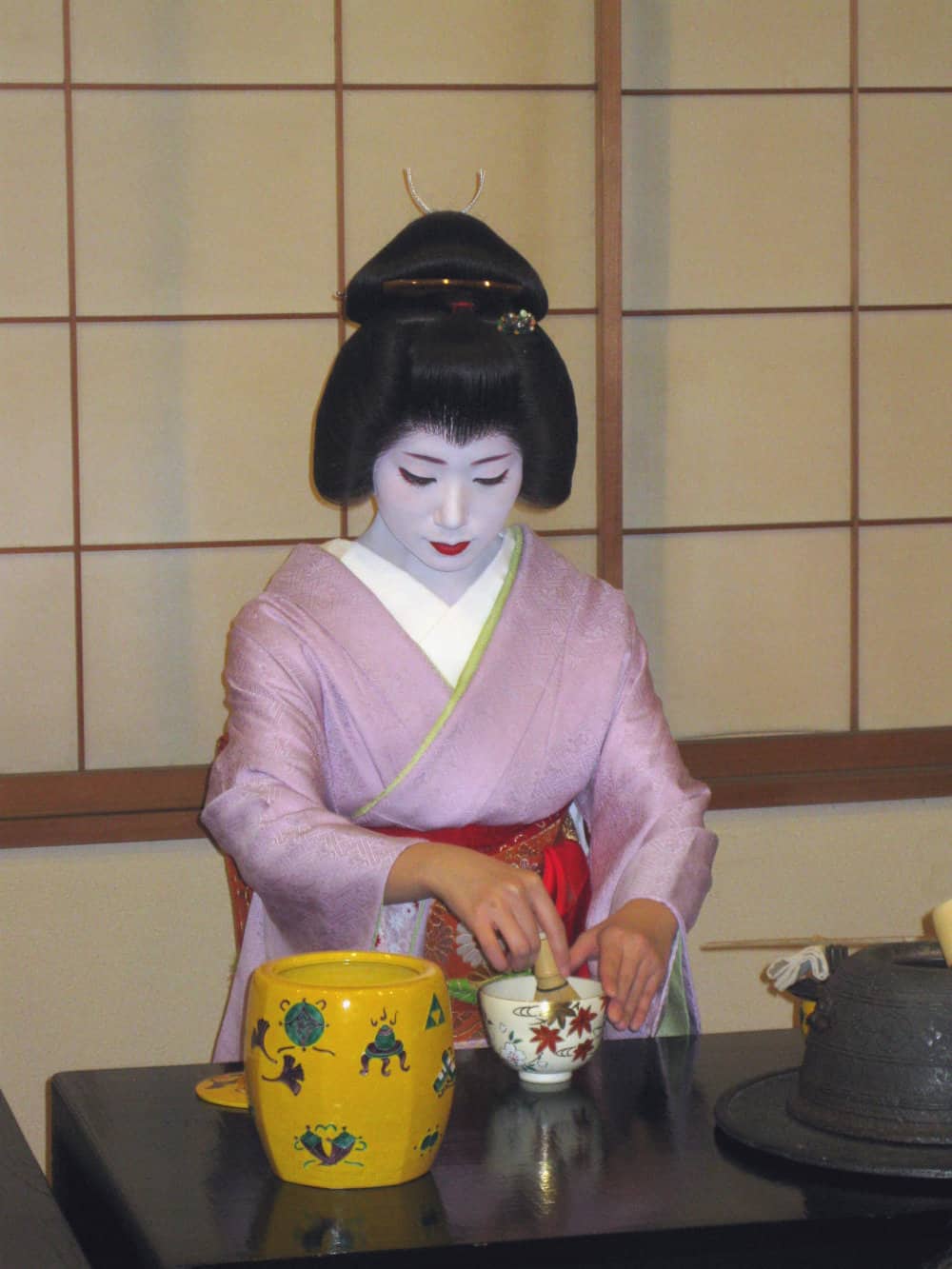
By sweet_redbird (Tea ceremony) [CC BY-SA 2.0], via Wikimedia Commons
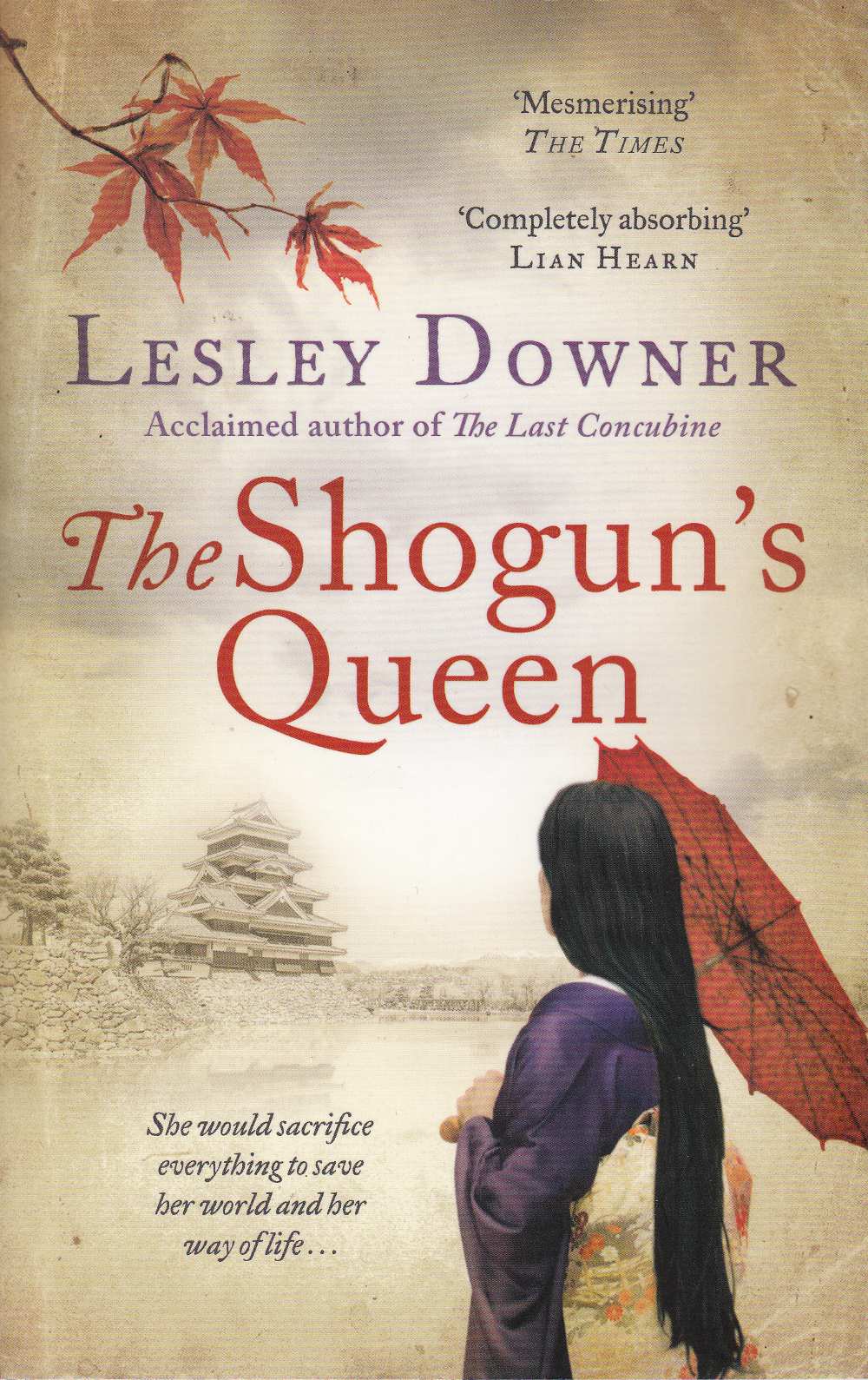
Amazon.co.uk
Review of The Shogun’s Queen by KraftiReader
“This was such an epic story that sent my emotions soaring high and dramatically cascading low. I was enchanted by the author Lesley Downer’s beautiful words describing a colourful world. I felt instantly transported to a land far, far away to a time where legends and rituals were significant and paramount. To a time when the unknown were feared. A time when sacrifices had to be made for the sake of the countries survival.
The Shogun’s Queen is a fictional novel based on events in Japanese history. Young Okatsu with her beauty, knowledge and courage has been given a task like no other. At the tender age of 17 Okatsu has been given a mission, a mission that seems almost impossible but none the less she has no option but to try. Okatsu must leave her family, her village and the love of her life. A tumultuous journey lies ahead for Atsu, as she is now formerly known and her destiny is shrouded with secrets, political upheaval and death.
The torment that Okatsu faces saying goodbye to her love is so heartbreaking but more heartbreak is to come. I could hardly read the words with the tears falling. The Shogun’s Queen story gripped me and left me intrigued all the way through and has left me feeling quite emotional and bereft at the end. I completely adored this novel and would highly recommend it. A stunning historical romance of sacrifices and love. 5/5*”
It’s fascinating reading about different cultures and traditions. Great post that fits perfectly with your book The Shogun’s Queen. Thanks for sharing my review also 😊
I’d like to read this book. Do you think this novel will be translate in Italy too?